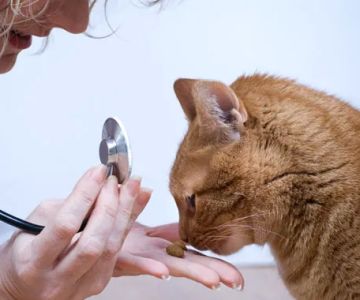What Classes Do You Take to Become a Veterinarian? A Complete Guide
Becoming a veterinarian is a dream for many who are passionate about animals and want to make a difference in their lives. However, the journey to becoming a licensed veterinarian requires extensive education and training. If you are considering a career in veterinary medicine, you might be wondering what classes are required to get there. This article will guide you through the necessary steps and coursework involved in becoming a veterinarian, so you can understand what to expect along the way.
Throughout my years of working in the field, I’ve had the privilege of seeing many students on their path to veterinary school. The road can be long and challenging, but it’s also incredibly rewarding. In this article, we’ll break down the essential courses you need to take, and the skills and knowledge you’ll acquire that will prepare you to care for animals and serve as an expert in veterinary medicine.
1. Prerequisite Classes Before Veterinary School
Before you can even apply to veterinary school, you’ll need to complete certain prerequisite courses during your undergraduate studies. These courses lay the foundation for more advanced topics in veterinary medicine. The requirements can vary slightly between schools, but there are some common classes you’ll likely need to take:
- Biology: A solid understanding of biology is essential for veterinarians. You will need to take courses in general biology, cell biology, and often animal biology to understand the fundamental biological processes of animals.
- Chemistry: Both general chemistry and organic chemistry are necessary to build a foundational understanding of the chemical processes in living organisms.
- Physics: Physics courses help you understand the basic principles that affect the functioning of animal bodies, such as fluid dynamics, energy transfer, and how animals interact with their environment.
- Mathematics: Courses in mathematics, particularly statistics and calculus, will help you with data analysis and understanding complex biological models.
- Animal Science: Many schools will require or recommend courses in animal science, which may include animal behavior, anatomy, and nutrition. These courses introduce you to the study of animals in more detail.
- English and Communication: Effective communication is crucial in the veterinary field. Courses in writing and public speaking will help you develop strong communication skills to interact with clients and colleagues.
In addition to these prerequisites, you will also need to gain experience working with animals, either through volunteer work or internships. Many veterinary schools look for applicants who have hands-on experience with animals, as this shows your commitment and readiness for the profession.
2. Core Veterinary School Classes
Once you’re accepted into veterinary school, you’ll dive into a much more specialized curriculum. The classes you take during veterinary school focus on various aspects of veterinary medicine, from understanding animal diseases to performing surgeries. Here’s an overview of the core classes you’ll likely encounter during the program:
- Veterinary Anatomy: In this course, you’ll learn about the structure of animals, including the anatomy of different species. Understanding animal anatomy is crucial for diagnosing injuries, diseases, and performing surgeries.
- Veterinary Physiology: This course covers the functioning of animal systems, including the cardiovascular, respiratory, and digestive systems. It helps you understand how animals’ bodies work and how they respond to various treatments.
- Microbiology and Immunology: Veterinarians need to understand how microorganisms affect animal health. In this course, you’ll study bacteria, viruses, and fungi that can cause diseases in animals, as well as how animals’ immune systems fight infections.
- Pharmacology: Pharmacology involves learning about the drugs and medications used to treat animals. This course covers the properties of different medications, dosages, and side effects, ensuring that veterinarians can safely prescribe treatment plans.
- Veterinary Surgery: As a veterinarian, performing surgery is part of your job, so you will need to learn surgical techniques and procedures. This course provides hands-on training and theory related to animal surgeries.
- Veterinary Pathology: This course helps you understand the causes and effects of diseases in animals. You’ll learn how to diagnose diseases and identify changes in tissues that indicate illness.
3. Clinical and Practical Training
While the theoretical coursework is essential, a large part of your veterinary education comes from hands-on experience. Clinical training allows you to apply what you’ve learned in a real-world setting. During your veterinary school years, you’ll spend time working in animal clinics, farms, or research settings to develop practical skills in diagnosing and treating animals.
In my experience, this clinical exposure is invaluable. It’s one thing to learn about animal care in the classroom, but actually working with animals gives you a deeper understanding of how to care for them. Whether you’re performing routine check-ups, assisting in surgeries, or treating sick animals, the clinical experience is where you start to feel like a true veterinary professional.
4. Specialized Veterinary Courses
After completing the core classes, you may have the opportunity to choose electives or specialized courses based on your interests. These might include:
- Zoo Medicine: A course that focuses on the care of exotic and zoo animals, which may require specialized knowledge compared to domestic pets.
- Equine Medicine: A class that focuses on the medical care of horses, which is important if you plan on working with large animals.
- Veterinary Dentistry: This course teaches you about dental care for animals, an often-overlooked aspect of veterinary practice.
- Veterinary Radiology: A specialized course on imaging techniques used in diagnosing illnesses, including X-rays, MRIs, and ultrasounds.
5. Internship and Residency Programs
After completing veterinary school, most veterinarians must undergo a one-year internship. During this time, you’ll gain more hands-on experience and receive guidance from experienced veterinarians in your chosen area of specialization. After your internship, you may also choose to pursue a residency program if you want to specialize further in areas such as surgery or oncology.
These programs are essential for gaining the expertise and experience necessary to become a competent and confident veterinarian. They are often demanding, but they are also where the most rewarding and fulfilling aspects of veterinary medicine come into play.
Conclusion
Becoming a veterinarian requires a commitment to education and practical experience. The classes you take in both your undergraduate studies and veterinary school prepare you for a career in animal health. With the right combination of classes, clinical training, and hands-on experience, you will be well-equipped to provide the best care for animals in need. If you’re ready to embark on this rewarding career, start by taking the necessary prerequisites and applying to veterinary school to begin your journey!











